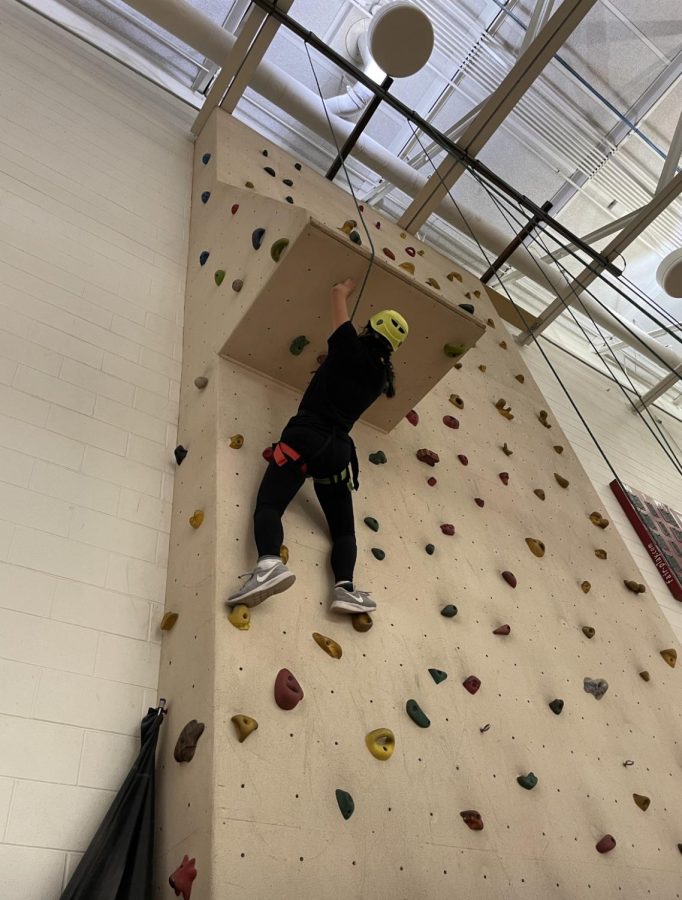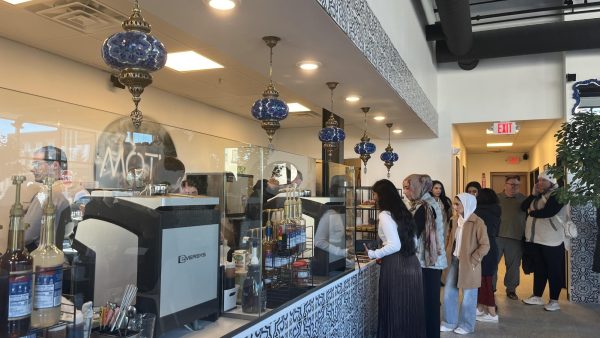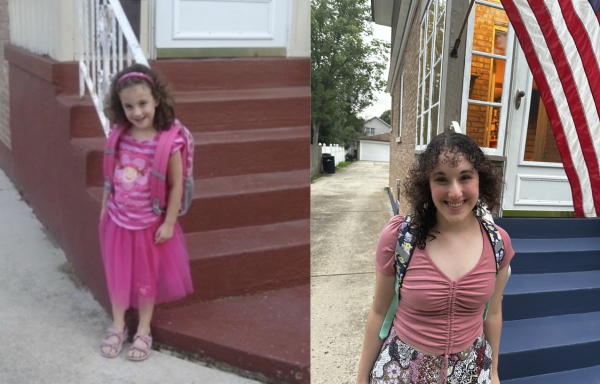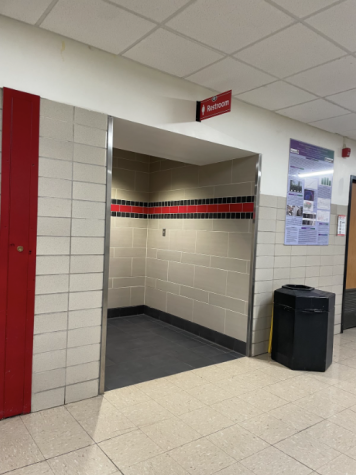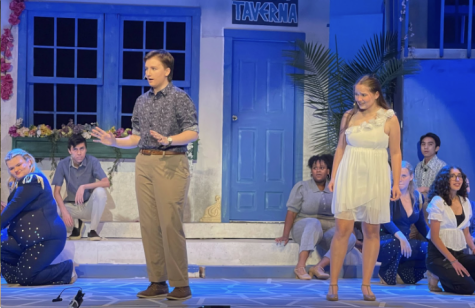Underrated classes at East
Adventure Challenge is a one-semester class, counting as PE credit. Over the course of this class, students will be challenged mentally, physically, socially, and emotionally through different tasks such as climbing, high ropes, belaying; things of that nature!
Welcome to the list of some of the under-the-radar classes at East! This is perfect for those of you unsure of what classes to take for the upcoming year.
For those of you who don’t read the academic program guide, you’re in luck! Today, I will be telling you about some of the electives/lesser-known classes Glenbard East provides us with. Feel free to check out the Academic Program Guidebook for more classes that weren’t mentioned but might also grab your interest!
Incubator Education:
Incubator Edu. is the beginning of something: future entrepreneurs! This is an entrepreneurship, all-year (2 semesters), business class. It teaches you the ups and downs of starting a business, teamwork, and the importance of organization. Students learn how to market their products, keep track of financials, and get a better understanding of how words can impact the future of their work. To be more specific, the job of the student is to come up with an idea for a product or service, prepare and put it together with the help of established mentors, and then pitch their ideas near the end of the second semester to the Sharks.
Unlike many other classes, where you listen to lectures, take tests and write papers, Incubator is a project-based class where you learn through doing. Plus, if students manage to get their business/product out before the end of the school year, they’ll be able to make some pocket money too!
Fashion Workshop:
Listen, even if students aren’t going into fashion, it’s always good to know the basics of sewing. What would you do if you are at an event and the outfit that you have planned out for months ripped? Wouldn’t you be devastated? That is why it is better to have those skills under your sleeve. With a needle and thread, your fit will be good as new!
Fashion Workshop is just that. This one-semester course, FACS (Family and Consumer Science) class, teaches students how to manipulate fashion to bring out their inner baddie. In this class, learn how fashion can complement you better- learn how to apply design elements and design principles to their projects.
Journalistic Writing:
Journalistic Writing is an ace of all spades. Students’ work won’t be limited to just the classroom, but rather to classmates and the rest of the school as their work will be published in GBE’s online newspaper, the Echo. During this course, students have an audience to work towards and get to work on photography, artwork, writing, and other things that you do not usually get in an average classroom setting.
This class is not only good for aspiring journalists, but it is good for making sure you don’t fall victim to the fake news out in the world. Especially now, during the age of social media, it is very important to understand the differences between authentic and artificial news and to be able to know if the person who wrote the article/post is trustworthy. It teaches students how to write about different topics like current events, opinion pieces, and other issues.
If students want to sharpen their minds by being aware of what they’re consuming through media, then Journalistic Writing is the best choice for them. Journalistic writing allows students to identify if a writer/author is eligible to be trusted. In other words, journalistic writing helps grow a reader’s discernment.
This counts as elective credit for 10th and 11th graders but is considered as English credit for 12th graders. It’s only for a single semester, but many precious things are taught during then.
AP Capstone:
A two-year, AP (Advanced Placement) program, AP Capstone builds off of two classes: AP Seminar and AP Research. When students pass the two AP courses, with a 3 or above, they will be rewarded with a certificate from the College Board. Although, if students pass 6 AP classes (including AP Seminar and AP Research) they will be given a special diploma from the College Board (this is really good for college applications!).
AP Seminar comes first, which is available to sophomores and juniors. It is a two-semester course, focused on research, understanding the credibility of news/articles/publishers, and how to find your own research on topics you are passionate about. The next year, students take AP Research, another two-semester course. Living up to the name, that’s where students do their own research and document it. AP Research is highly recommended if you really want to wow colleges with your applications. These classes also hold lively activities, such as participating in spirit weeks and having classroom potlucks!
African American Experience in Literature:
For people interested in African American history, and movements that impacted society, this class is the one for you! Throughout this course, students will be studying how the voices of Black scholars and people reflect on history, through many different lenses such as historical, political, societal, and cultural. Students will explore authors who come from different places in life, with different views. It is recommended to take this class if you enjoy reading, are able to have a respectful conversation, and want to grow as a person when it comes to race and equity in our modern-day world.
African American Experience in Literature is a one-semester course, only open to seniors and counts as ½ of their English credit. It is the perfect opportunity for students to have an appreciation of how similar humans can be, along with their differences.
AP English Literature and Composition:
This class would be the best for students who enjoy reading and analyzing. It is a two-semester course, open to seniors only. If students want to grow their skills in analysis, then this class is for them! Students grow through writing analysis, become more confident in speaking, and will sometimes let their inner Hollywood star shine! Not fully fond of just writing? Well, AP Lit also has opportunities for them to whip out their tech-savvy skills through movie diaries and videos.
Or maybe, they do not like either of those, but they do enjoy a good read, whether it be the classy classical texts, or contemporary classics. If they find that reading boring, well they could head in and enjoy laughing at Medieval English. They will be filled with laughs at the end of this course, if not, they have the humor of an Egg (get that?). Or if they enjoy talking, in both large and small groups, about pieces of literature that you found intriguing, this class is for them!
Overall, in AP Lit, there is an appreciation for all things literature, such as the art of poetry, classics, and other writings. And, a range for everyone to feel engaged in!
Adventure Challenge:
Want to be challenged some more aside from academics? If so, Adventure Challenge (1 and 2) is for students who seek just that! It’s open to 10th-12th graders, sorry freshmen. Students must complete Adventure Challenge 1 in order to take Adventure Challenge 2.
Adventure Challenge is a one-semester class, counting as PE credit. Over the course of this class, students will be challenged mentally, physically, socially, and emotionally through different tasks such as climbing, high ropes, belaying; things of that nature! It builds trust between students and teaches students the importance of communication, and how to become leaders.
AP Computer Science Principles:
Alright, so, if students are interested in going into technology or would just like to have the skill of understanding and making computer codes, then this course is for them! As many would say, the future is technology. And what is technology running on? Codes.
AP Computer Principles teaches students the fundamentals of computer science and allows them to understand the impact technology and computing has on us. The accomplishment AP Computer Science Principles hopes to achieve is to have leaders in the fields of computer science and bring in people who are not usually involved with computer science.
For more information, go to ‘Business Course Descriptions’ in the Academic Program Guide. Along with that, this AP class is two semesters, a whole year, with the AP test being required to take at the end. Try not to be secret hackers! We don’t need lawsuits heading your way while you are here at East.
Oceanography and Meteorology:
For students from 10th-12th, this one-semester class takes a deep dive (you got that?) into the weaves of connection between the ocean and weather. Students will be able to study the atmosphere and how it affects our weather while being able to interpret weather data, and many other things. Although, students must have passed one year of a science course and an algebra equivalent course.
Understanding more about the ocean is perfect for those interested in marine biology, or those who want to know why Earth’s craters look like bad pimple scars that are taking centuries to disappear.
Geology and Astronomy:
Are you the type of student that enjoys stargazing? Or maybe even taking pictures of the moon? Would you like to know why Greek scholars were obsessed with the stars? Then this class is for you! It is a semester-long class, with lots of labs, for 10th-12th graders. But, beforehand students must have passed one year of a science class and an algebra equivalent course.
In Geology and Astronomy, students will be introduced to the study of nonliving earth systems (geology), such as plate tectonics, rocks, and minerals, field geology, and the study of the universe.
Spanish for Heritage Speakers:
There are different levels of Spanish Heritage: 1, 2, 3 Honors, and 4 Honors (this also can count as AP Spanish Language and Culture). For the first 3, all grades are able to take it. All classes listed above are for two semesters, for students who speak Spanish at home and are connected to it in a more cultural way. For 4 Honors and AP, it’s available for 10th-12th graders.
The AP class is taught fully in Spanish, and is for those advanced in reading, writing, listening, and speaking. The regular classes focus on improving students’ skills in speaking, listening, reading, and writing, and are expected to be more proficient.
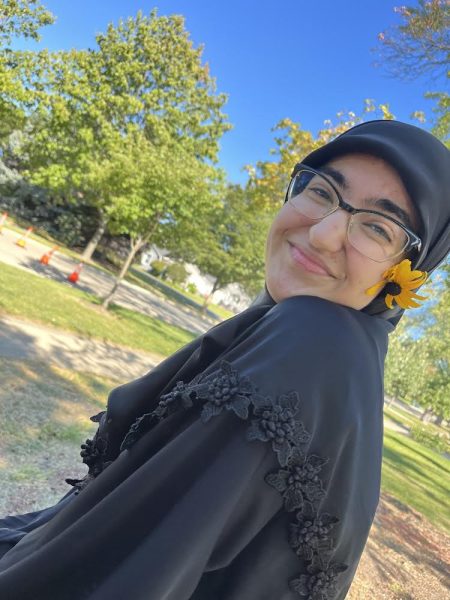
Zahra is a senior and this is her second year in the Echo! Besides Echo, she enjoys crocheting in her free time along with writing, and helps offer her...



